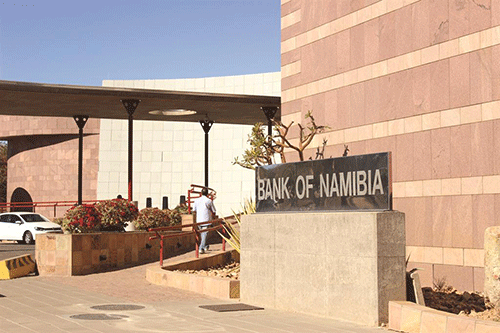Retailers and merchants are not allowed to impose minimum or maximum restrictions on card payments, and have been instructed by the Bank of Namibia (BoN) to honour all notes and coins deemed legal tender in the country, including the mostly unwanted five cent coins. In this regard, consumers have been advised to report any transgressions of the law to the Payments Association of Namibia (PAN).
This clarification from the authorities was forthcoming after a number of consumers complained to New Era that certain retailers in the country are taking the law into their own hands. Numerous complaints have surfaced about shops refusing to accept five cents and even 10 cent coins, while others impose their own minimum card transactions.
“The Bank of Namibia does not set card swiping amount limits for merchants. The banking industry is required to ensure that merchants do not impose a minimum or maximum purchase amount for the acceptance of card transactions. Furthermore, merchants are required to honour valid debit and credit cards in their acceptance category, regardless of the dollar amount of the purchase,” clarified BoN spokesperson Kazembire Zemburuka.
He added that no Namibian retailer may refuse any note or coin that is legal tender in the country.
“Although the Bank of Namibia discontinued the minting of the N$0.05c coin in 2019, worth noting is that the N$0.05 cent coin still remains legal tender within the borders of Namibia, and should be accepted as a means of payment in the exchange of goods and services,” he stated. With regards to the swiping limits, Zemburuka advised consumers to report any non-compliance to the PAN, while matters of legal tender should be reported to the Banking Department in the BoN.
Meanwhile, the PAN, which is empowered by the Payment System Management Act (2003), stated that it has learned that some merchants are adding a surcharge (additional fee) to card transactions, and also addressed the setting of minimum or maximum transaction amounts as a condition for accepting debit or credit cards for payments. PAN warned these merchants that such practices have a negative impact on consumers, and are in direct violation of international operating regulations by both Visa and Mastercard.
As such, the PAN reminded all merchants in the country that they are required to treat all debit and credit card payments like any other method of payment without additional costs (surcharges) added to the value, and to honour valid debit and credit cards in their acceptance category, regardless of the dollar amount of the purchase.
In addition, acquiring banks have been reminded to ensure merchants do not differentiate methods of payment by imposing a surcharge fee on any card payments, and that these merchants do not impose a minimum or maximum purchase amount for the acceptance of card transactions. “Carrying around large amounts of cash poses a risk to the individual. With a debit or credit card, you can pay for goods and services in a safe and secure manner. Cards also offer a fast and convenient way to shop. Penalising consumers for the use of payment cards is not only in contravention of card-operating rules, but it unfairly shifts the cost of electronic payments onto the consumer,” reads a PAN statement. Therefore, the PAN has encouraged consumers to report any non-compliance: “If PAN becomes aware of a merchant’s non-compliance with any operating rules and regulations, PAN may notify the acquirer of such non-compliance, and the acquirer must promptly ensure the merchant discontinues the non-compliance practice immediately”. The association cautioned that failure to comply with these regulations may result in the pursuit of “remedial measure(s)” as provided for in Namibian legislation or the relevant card-operating rules and regulations.


